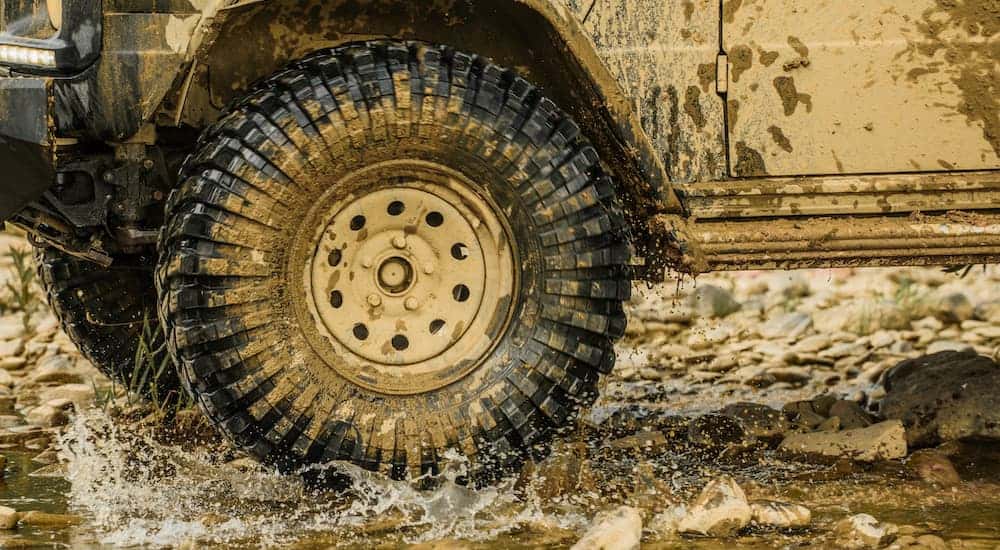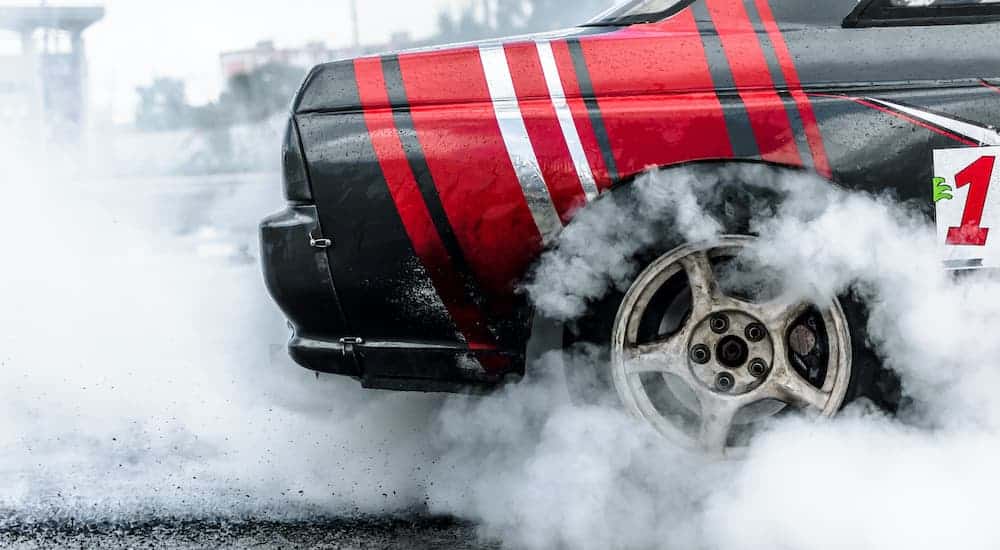Little do people know, but one of the most confusing parts of a car is often the tires. Not only are they some of the most technologically advanced in design compared to their overall size, but tires are often the part of the car that requires the most overall maintenance: from checking air pressure regularly to replacing the tires when they are worn. Indeed, replacing a tire is not only one of the most complex tasks for a new car owner but also one of the most common. However, what if I told you that there are different types of tires and that choosing a tire is one of the most important decisions for a car owner? So, before you visit a tire shop near you, here is a quick guide on deciding on a tire type and tips associated with tire buying in general.
What Makes a Tire?
Tires are a piece of technology that predates the automotive industry by a very large margin. Although the pneumatic tire is a very recent development, the idea of a tire is something that has been in the human spirit for a long time. As such, tire technology has developed and evolved over many generations, naturally making many different types of tires that are geared towards a specific type of driving experience. With tires designed to match the seasons to tires designed to enhance performance, the selection of possible tires to choose from has become nearly endless.
What Types of Tires Are There?
Generally speaking, tires can be divided into a few groups that are designed to target a specific set of enhancements and proficiencies. Granted, not all tires are applicable to every vehicle type, but these details will be tackled later in the article. As for now, it is important to understand that one of the most important specifications that a tire can provide is the type of performance that it provides; as such, the tire you choose will depend on the type of environment you live in and the type of vehicle you drive.
All-Season
Generally speaking, all-season tires are best described as the type of tire that is good in many things but not a specialist in anything. In other words, an all-season tire is a pretty good general use tire, with a smooth drive, relatively good traction in both the wet and winter conditions and overall longer-lasting tread life. That said, all-season tires are overall good choices if you live in a warmer region that does not see harsh winters, such as in California and the American South.
Summer Tires
Summer tires are much like all-season tires in some ways. However, there are some crucial differences between the two. Granted, both are generally good tires all-round, but where all-season tires are acceptable in mild winters, summer tires sacrifice bad weather handling for good weather performance. That is to say, a summer tire offers higher overall handling and higher traction in hot and dry conditions. For ultra-high performance tires, this often comes at the downside of tread life, so there may be long-term costs associated with relying on these types of tires.

All-Terrain Tires
Sometimes, a vehicle’s usage is less based on everyday driving in the cities and more on recreational usage in the wilderness. With off-roading and adventuring becoming more common with each passing day, the era of all-terrain tires has also begun. Generally speaking, all-terrain tires are built with overwhelming off-road traction, but that does come at the cost of a louder drive on the road. Bottom line, unless you’re planning to be doing a lot of adventuring, chances are that you are going to want another tire on this list. That said, if these kinds of activities are right up your alley, then this really is the tire for you.
Unlike other tires on this list, all-terrain tires are one of two more specialized tires. Given that they are designed for usage in more difficult terrain, these tires are especially more prevalent with large, sturdy vehicle types, like SUVs and trucks. While it is definitely an option for many smaller vehicles, like sedans, these vehicles are not specifically designed to handle these conditions. While all-terrain tires can help to provide traction in these difficult areas, it’s important to keep in mind that engine power and torque are also important factors. Before you decide to install all-terrain tires on your car, be sure that your vehicle is built to handle these conditions, as this could be the difference between a safe drive and a very dangerous accident.
Winter Tires
Wintertime is a season that is often difficult for many drivers in the United States. Especially in the northern parts of the country, where snow and ice storms are a common occurrence, winter can prove to be the most dangerous time, thanks to slippery roads, poor visibility, and numerous other conditions. That said, many of these issues can be mitigated by installing a set of winter tires, a type of tire designed to tackle the ice and snow associated with driving during the winter months.
Competition Tires
Like all-terrain tires, competition tires are a tire type that is really only suited for a minority of drivers. As one can assume, competition tires are designed with the racetrack in mind, not the street. With amazing overall traction and handling, these are the standard tire type for competition racing of all kinds. That said, the downside to these tires is that they offer the worst wear life of all the tires on this list, making them the most expensive in maintenance costs. So, in the end, unless you find yourself racing on a racetrack in your free time, this is definitely not the tire type for you.
Like you can expect, competition tires are high-tailored not only to specific vehicle types but to specific racing types as well. From the racetrack to drag racing, there is a plethora of different competitions that will require competition tires. That said, it’s important when buying competition tires to buy the tire type needed in your specific competition type. Choosing the wrong type will be the difference between performing well or not as well as an issue of your own safety on the track.

Where Should I Buy Tires?
When it comes to buying tires, it’s going to depend largely on the type of tire you plan on buying that will define which dealer you go to. Generally speaking, there are many companies that will offer a selection of tires that are adequate in most of these categories, especially for tires that are most general-use like all-season tires and seasonal designs. Some of the most renowned companies for tires include Michelin, Continental, and Bridgestone.
That said, there are cases where a specialized tire manufacturer will be necessary. For example, while some of these tire companies may offer competition tires, a company geared specifically towards selling competition tires may be more your speed. This is especially the case if your livelihood depends on your racing experience, but it may also be in your interest just on notes of safety.
Conclusion
It’s true – tires are a lot more confusing than they appear at first. There are a lot of different types of tires available on the market, all with their own different properties and benefits, from all-season and winter tires to specialized all-terrain and competition tires. That said, with a little bit of research and preparations, you can be very well prepared to visit a tire shop near you.

